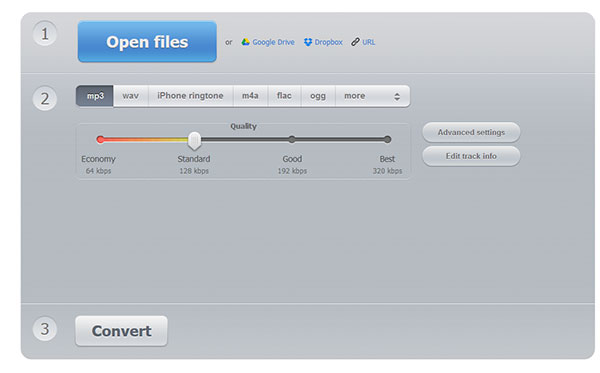
Or it could have gone the other way and embraced the detached irony of Paul Thomas Anderson’s Boogie Nights, which let the aesthetics and soundtrack set the mood and featured composite characters versus portrayals of real-life people (in this case porn stars instead of rock stars). It could have gone softer, embracing the clichés of rock fandom in a wistful, romanticized Almost Famous sort of way. Still, the lack of a compelling core cast might not have mattered so much if Vinyl had just taken its cues from the great rock films that preceded it. The only character who really elicited any kind of passion was Juno Temple’s Jamie Vine, and even then we mostly cared about her clothes. Admittedly, neither was especially likable, and unlike Tony Soprano, they weren’t complex enough to make viewers care one way or the other. We’ll never know if Bobby Cannavale’s Richie Finestra might have benefited from this, but Olivia Wilde’s Devon surely could have.
#Groove scribe app tv#
So what keeps “retro”-themed movies and TV shows from turning into coagulated cheddar glop suitable for dipping? Had Vinyl been given another chance, how could it have turned things around?Įpisodic television might be more challenging than film when it comes to holding our attention, but it actually has a better shot at connecting in the long run, offering more time for character development and evolution. Punk scribe Legs McNeil was vocal about his disdain as well his Facebook post immediately following the show’s cancellation read: “YES, THERE IS A GOD!” Vinyl was hated by the punk cognoscenti even more than that cheesy CBGB movie, which fudged its chronology, suffered from terrible casting, and also struggled thematically. Richard Hell (who inspired both the show’s punk group, The Nasty Bits, and its frontman character, played by Jagger’s son James) wrote a scathing blog post after the premiere, while groupie queen Pamela Des Barres called the show a “travesty” in a public post on Facebook. Vinyl clearly never set out to be a factual docu-drama, but when it got its timelines wrong, there was no forgiveness - especially from those who were there. We learned, we laughed, and then we let it go. We almost always googled shit to see just how wrong they got it. Yes, Vinyl often went the Forrest Gump route and tried to address a hodgepodge of cultural moments that never quite fit together, but that was part of the experience. We liked to come up with dream actor lists that would better embody the rock stars depicted on the show (Tilda Swinton could’ve re-visited her David Bowie drag! Josh Brolin would’ve made a hot Elvis!). It was a gas dissecting the styling with our designer buddies and Ebay-scouring fashionista friends, but that wasn’t the only appeal.

Some of us would get thematic about it, donning era-appropriate, vintage maxi dresses and sticky lip gloss while drinking cheap wine out of gaudy boho goblets. Like other HBO end-of-the-week “event” programs ( Sex and the City, The Sopranos, Six Feet Under, True Blood, and Game of Thrones), Vinyl was a show best watched in a communal setting. It also served as a campy palate cleanser to Lena Dunham’s smarter yet infinitely more irritating hipster whine-a-thon on Sunday nights. It wasn’t a hate-watch thing (like with Girls) but more of a play-watch thing, sparking nostalgic rumination and hours of Name That Tune-inspired debate.

Few took it seriously, even when it attempted to take itself seriously. The show’s first season was a parade of polyester and platforms, nose-candy binges and raucous club scenes, all blended together and embellished with gratuitous song placement, gangster gore, and some curious rock-god cosplay. Yes, the show mostly failed thanks to historical inaccuracies, questionable casting choices, and an overzealous tone, but a revamp with a new writer replacing Boardwalk Empire’s Terence Winter was planned for the next season, and given another chance, Vinyl could have found its groove. The music biz drama boldly attempted to capture the drug-fueled decadence and sonic experimentation happening in New York in the ‘70s, when art, nightlife, and new music genres emerged and converged to spark a renaissance for entertainment and self-expression. That’s a shame because some of us enjoyed Vinyl for what it was - a gauche take on a gauche era, reflecting, like the mirrored pieces of a disco ball, a multi-faceted time in music and popular culture. The news left many critics in a state of rejoice, patting themselves on the back for being right about the show’s dramatic deficits with a flurry of told-ya-so think pieces. As HBO announced earlier this week, cable television’s most maligned program in recent memory, the Martin Scorsese/ Mick Jagger-produced Vinyl, will not be renewed for a second season.


 0 kommentar(er)
0 kommentar(er)
